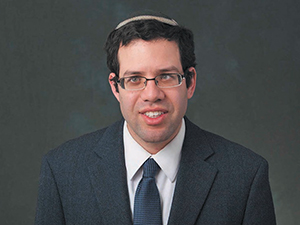
If you had to answer questions on 300 chapters in Tanach, with the clock ticking, how would you do? Thirteen men and women are about to answer that question when they compete on Sunday in the Chidon HaTanach, the U.S. National Bible Contest for Adults, at the West Side Institutional Synagogue, 120 West 76th Street in Manhattan. Sponsored by the World Zionist Organization (WZO), local partners include Yeshiva University and the Orthodox Union. The winner, and two runners up, will represent the United States at the International Chidon HaTanach in Jerusalem on December 23rd, the eighth day of Chanukah. They will face off against the Israeli finalists and winners of the European contest, held in France, and the South American contest, held in Argentina.
The event is open to viewers with advance registration at http://azm.org/bible-contest and hundreds have already signed up, according to Zev Berman, the U.S. Coordinator of the competition for adults. “It will be very exciting to be in the audience. Musical acts will be interspersed with the contestants answering questions, so it will be an enjoyable experience for viewers,” he said.
For participants, it’s all about a love for Tanach. The contestants come from all over the country and range from secular to hareidi. “It’s a wonderful cross section of people,” Berman said. “Tanach is the cornerstone of our history and our shared Jewish heritage–it unifies Am Yisrael, Torat Yisrael and Eretz Yisrael in a way that nothing else can.” Anyone can enter but there is a gradual process of elimination. There is a test for everyone who registers and those who pass are finalists for the national competition.
Dr. Simcha Leibovich, the representative of the WZO Executive in North America, told JLBC that the competition is funded by the Prime Minister and Ministry of Education in Israel and the World Zionist Organization. The international adult competition, for anyone over 25 years old, had not been held for 32 years but was reinstated in 2012 by Prime Minister Benjamin Netanyahu and his wife Sarah. They are big supporters of the contests: Sarah Netanyahu’s brother won the Israeli prize one year and their son was number two in the youth contest. “Tanach connects Jews all over the world and connects them to Eretz Yisrael. Whatever else we do, we study Tanach,” said Dr. Leibovich.
Rabbi Ezra Frazer of Teaneck, one of the contest judges, won the youth contest as a tenth grade student at Torah Academy of Bergen County and took second place in the first revival of the International Bible Contest for Adults in 2012. He is now the administrator of the National Bible Contest for Jewish Youth. Dr. Leibovich reached out to him to help run the adult contest as well. “My background as a participant and administrator helps with the technical details,” Rabbi Frazer said. “I understand the questions and the pacing and can help smooth any complications that might come up.” Rabbi Frazer teaches full time at Yeshiva University and is the Assistant Coordinator of Hebrew. His wife teaches at the Moriah School.
Efrem Epstein of New York competed in the contest as a middle school student at Solomon Schechter of Westchester and as a high school student at the Ramaz School. Now, he’s participating as an adult. “I didn’t know until this summer that the adult contest had started again and I thought, why not try again,” he said. The experience for him is different this time around. He said he has been learning a chapter of Tanach a day since Shavuot 1992 so he doesn’t have to cram. “I try to keep my eyes open and look for verses with similar phrases. If I’m studying one book, I compare it to a similar phrase in another, and look up other instances.” He said middle school students were tested on 50 or 60 chapters and high school students had to know between 100 and 150 chapters. Adults have to know about 300 chapters, he said.
While it would be nice to win a trip to Israel, Epstein said that isn’t his primary motivation. “It’s an honor to be part of this experience. Even if I come in last place, it’s rewarding to be recognized among all these people learning Tanach.”
By Bracha Schwartz










